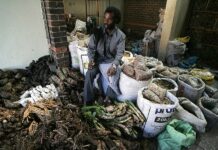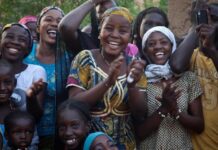A recent study by Freude, L., & Waites, M. (2023). titled “Analysing homophobia, xenophobia and sexual nationalisms in Africa: Comparing quantitative attitudes data to reveal societal differences” published in Current Sociology by Sage Journals shows that social attitudes toward people outside heterosexual norms and towards immigrants and foreign workers vary across the five African countries.
“
Social attitudes towardS people outside heterosexual norms and, towards immigrants and foreign workers vary across the five African countries – Freude, L., & Waites, M. 2023
This article explores homophobia and xenophobia in Africa. It explores how social attitudes towards people outside heterosexual norms and towards immigrants and foreign workers vary across five African countries, namely Kenya, Mozambique, Nigeria, Senegal, and Zambia.
Methodology
The study employed a quantitative data analysis and literature review to examine the social attitudes towards people outside heterosexual norms and towards immigrants and foreign workers across five African countries: Kenya, Mozambique, Nigeria, Senegal, and Zambia. The study also explores a literature review of the historical, cultural, and political factors that shape the patterns of prejudice in each country.
Findings of the study
Findings for the study show that social attitudes toward people outside heterosexual norms and towards immigrants and foreign workers vary across the five African countries. The study also posits that the correlation between homophobia and xenophobia in Africa is shaped by historical, cultural, and political factors. The study highlights the importance of understanding the relationship between sexuality and nationalism in African contexts and proposes a more flexible concept of homosexuality-inclusive nationalism to analyze the relationship. Finally, the study acknowledges the limitations of quantitative methods in studying sexuality and nationalism and calls for more contextual interpretation and qualitative research.
Implications of the study
The study explores that Mozambique has the lowest level of homophobia and xenophobia among the five countries, and half of the respondents express inclusive attitudes towards both homosexuals and immigrants. The study posits that homophobia has increased in four of the five countries (except Senegal) between the two rounds of the survey. The study proposes that this may be attributed to various factors, such as the global economic crisis, the influence of specific religious forms, or the growth of political homophobia. The study also highlights that Senegal has the highest level of homophobia among the five countries but also the lowest level of xenophobia. The study suggests that this may be due to the role of certain Muslim religious leaders who have mobilized cultural anger against homosexuals, while the government has tried to strike a balance between religious orthodoxy and minority protection. The study claimed that Senegal has a long history of international relations and a substantial tourist industry, which may foster more tolerant attitudes toward foreigners.
In conclusion, this comprehensive study sheds light on the intricate landscape of homophobia and xenophobia in Africa, unraveling nuanced social attitudes across five diverse countries. The findings underscore the dynamic interplay of historical, cultural, and political factors shaping prejudices. Recognizing the limitations of quantitative methods, the study calls for a more flexible approach and emphasizes the need for contextual interpretation and qualitative research to enrich our understanding. The implications are significant, pointing towards varying levels of acceptance and highlighting Mozambique’s remarkable inclusivity amidst a global rise in homophobia. As societies evolve, acknowledging these complexities becomes imperative for fostering tolerance and promoting inclusive national identities.
















 The African Research (AR) Index is a comprehensive scholarly directory and database focused explicitly on journal publishers that publish and disseminate African research.
The African Research (AR) Index is a comprehensive scholarly directory and database focused explicitly on journal publishers that publish and disseminate African research.

